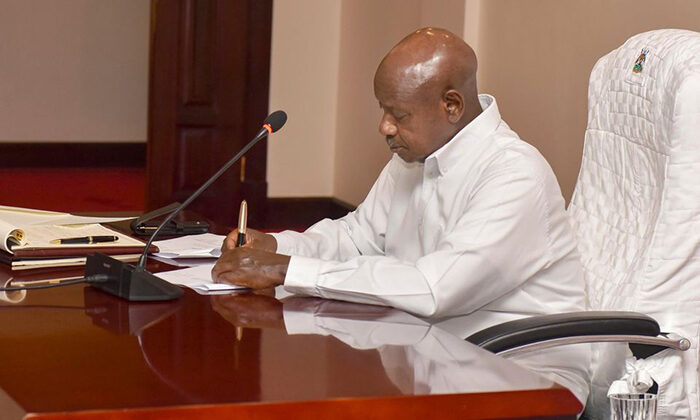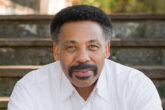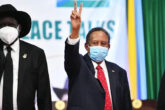
Photo: PPU.
The National Task Force on COVID-19 has briefed the President Yoweri Museveni on the progress made regarding safety guidelines Churches in the country are expected to observe once the ban on congregational prayers is lifted.
According to the Hon Judith Nabakooba, the Minister of ICT & National Guidance, the National Task Force members held a meeting with the President shortly before the NRM parliamentary primaries.
She said this in a press statement dated 13th September 2020.
Nabakooba cautioned different institutions coming out to announce different dates of resuming operations.
“A few weeks back shortly before the NRM parliamentary primaries, His Excellency met with the National Task Force members on COVID-19. They briefed the President on the progress being made regarding the safety standards for key sectors such as churches, schools, the airport and many others,” she said.
“Since that meeting, I have seen a number of attempts by different institutions coming out to announce different dates of resuming operations. Whereas it is not bad for institutions to continue with their planning and preparing for resumption of business, it is wrong for them to continue announcing dates,” she said.
According to the Minister, President Museveni will “very soon” come out to address the nation.
As this website reported earlier, the Task Force led by Rt. Hon. Dr. Ruhakana Rugunda unanimously agreed that Churches be reopened but with not more than 70 worshipers at a service.
Also, religious institutions under the Inter-Religious Council of Uganda (IRCU) earlier submitted Standard Operating Procedures-SOPs to guide the safe re-opening of places of worship.
IRCU proposed mandatory use of face masks, temperature scanning, and sanitization at entrances of places of worship and social distancing of two meters.
The SOPs suggest that vulnerable members of the congregation including the elderly, and those with underlying health conditions should stay home and watch the services online.
The Inter-Religious Council suggests collection of gifts, offertory, tithing or any other giving should be limited to entrances while worshipers are entering or exiting the places of worship to limit contact or many people touching on the same surfaces. Furthermore, sharing written materials like Bibles, Qurans, songbooks, programs, or other written literature will also be prohibited.
The Inter-Religious Council suggests every place of worship should keep a register of the worshipers in attendance in a given service. The register should contain the names, phone contact, and area of residence of each worshiper.
In the same development, the proposed standard operating procedures point out that places of worship will not be allowed to be used for any form of political campaigns.

